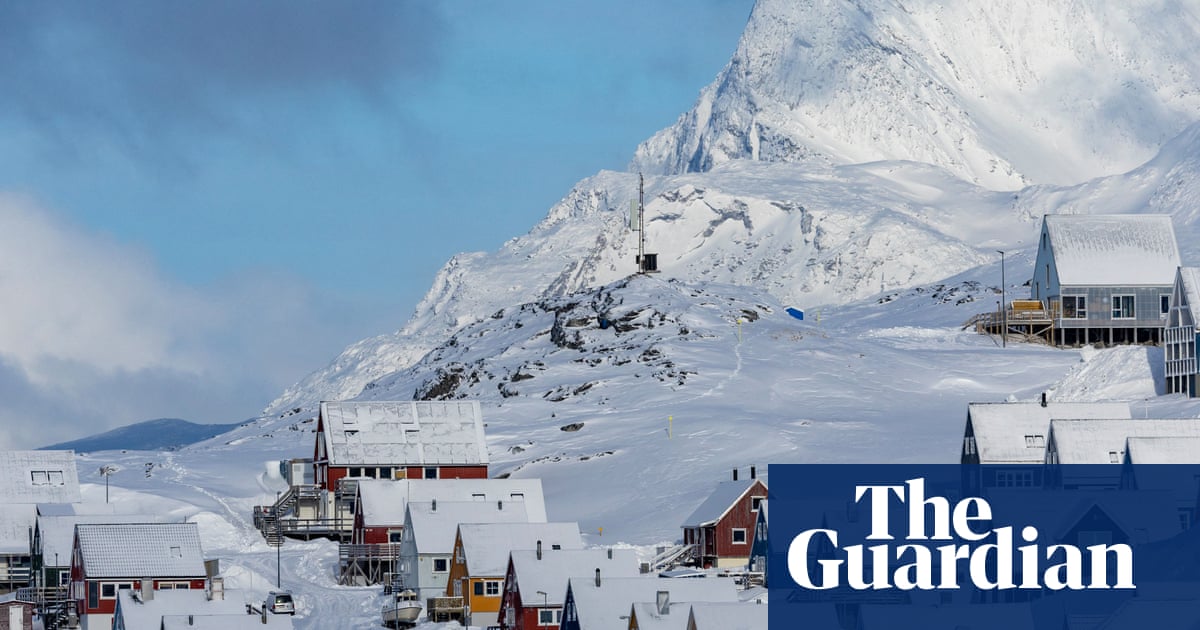US officials are discussing a plan to pullGreenlandinto America’s sphere of influence using a type of agreement that the United States has used to keep close ties with several Pacific Island nations, according to two US officials and another person familiar with the discussions.
Under the plan being considered, the Trump administration would propose to Greenland’s leaders that the island enter into a so-called compact of free association, or Cofa, with the United States.
While the precise details of Cofa agreements – which have only ever beenextended to the small island nationsof Micronesia, the Marshall Islands and Palau – vary depending on the signatory, the US government typically provides many essential services, from mail delivery to emergency management to military protection. In exchange, the US military operates freely in Cofa countries and trade with the US is largely duty-free.
Donald Trump, who during his first administration floated the idea of acquiring Greenland, has pressed even harder since taking office in January,refusing to rule outtaking the island by force. Denmark, which governs the island, has sharply rebuffed the idea.
A Cofa agreement would stop short of Trump’s ambition to make the island of 57,000 people a part of the US. It is not the only Greenland plan on the table, the sources said, and it would face many practical hurdles.
Some officials at the national security council and the national energy dominance council, which Trump established, are involved in the talks, two of the sources said. The national economic council is also involved, one of those sources added.
Cofa agreements have previously been inked with independent countries, and Greenland would probably need to separate from Denmark for such a plan to proceed. While polls show Greenlanders are interested in independence,surveys also show most do not want to be part of the US. A Cofa – which cedes significant autonomy to Washington – could be viewed with similar skepticism.
One of those involved in the discussions is Markus Thomi, the acting senior director for the national security council’s western hemisphere section, according to two of the sources. David Copley, the key mining official on the NEDC, is also involved in the talks, one of those sources said.
The White House did not respond to a request for comment, nor did the Danish embassy or Greenland’s representative office in Washington.
The interior department, which plays a key role in administering Cofa agreements through its office of insular affairs, also did not respond.Washington’s existing Cofa agreements with Palau, the Marshall Islands and Micronesia are seen across the US political spectrum as important for countering China’s growing influence in the Asia Pacific region.
Still, such accords have hit snags in the past.
Republican lawmakers have at timesopposed elements of the budgetallotted to fund Cofa agreements, creating deep frustrations in the countries that rely on the funds.Signing a Cofa also offers no guarantee that a nation will be immune from influence operations by US rivals.
Danish leaders have not been approached about the idea and have not had any substantive discussions with the White House about Greenland’s future status, one senior European official said. Danish officials have publicly rejected the idea of the US acquiring Greenland, and insist Greenlanders must determine their future.
Administration officials argue the island is crucial to the US due to its deposits of minerals that have important hi-tech and military applications, but which remain untapped due to labor shortages, scarce infrastructure and various other challenges.
An administration official told Reuters the US was helping Greenland diversify its economy and gain greater economic independence from Denmark. The Development Finance Corporation and Export-Import Bank could play a role in that process, the official said.
The official said a Cofa “could be an elegant way to address some of the concerns that we have when it comes to Greenland security” but did not otherwise comment on the possibility of such an accord.
